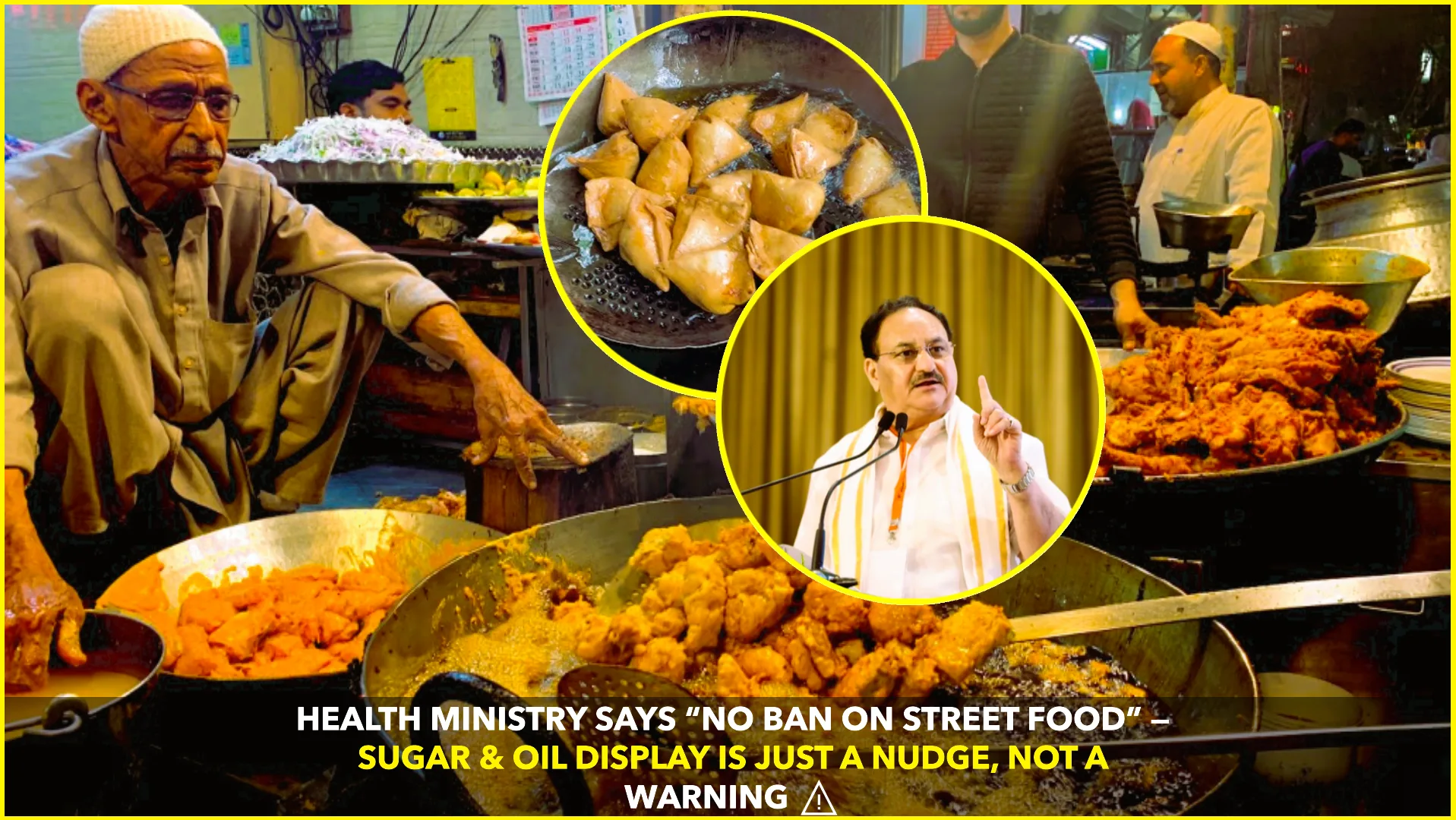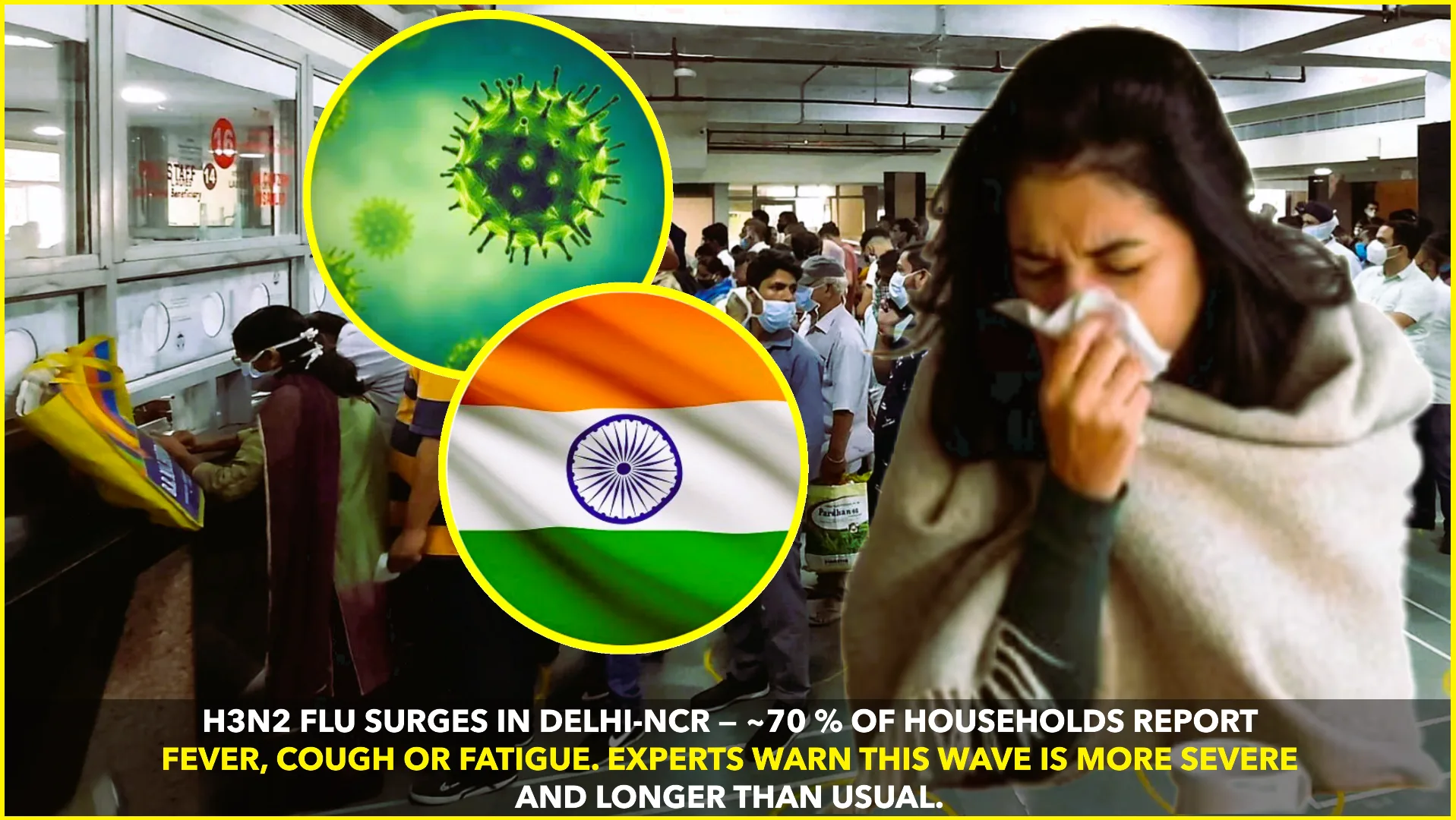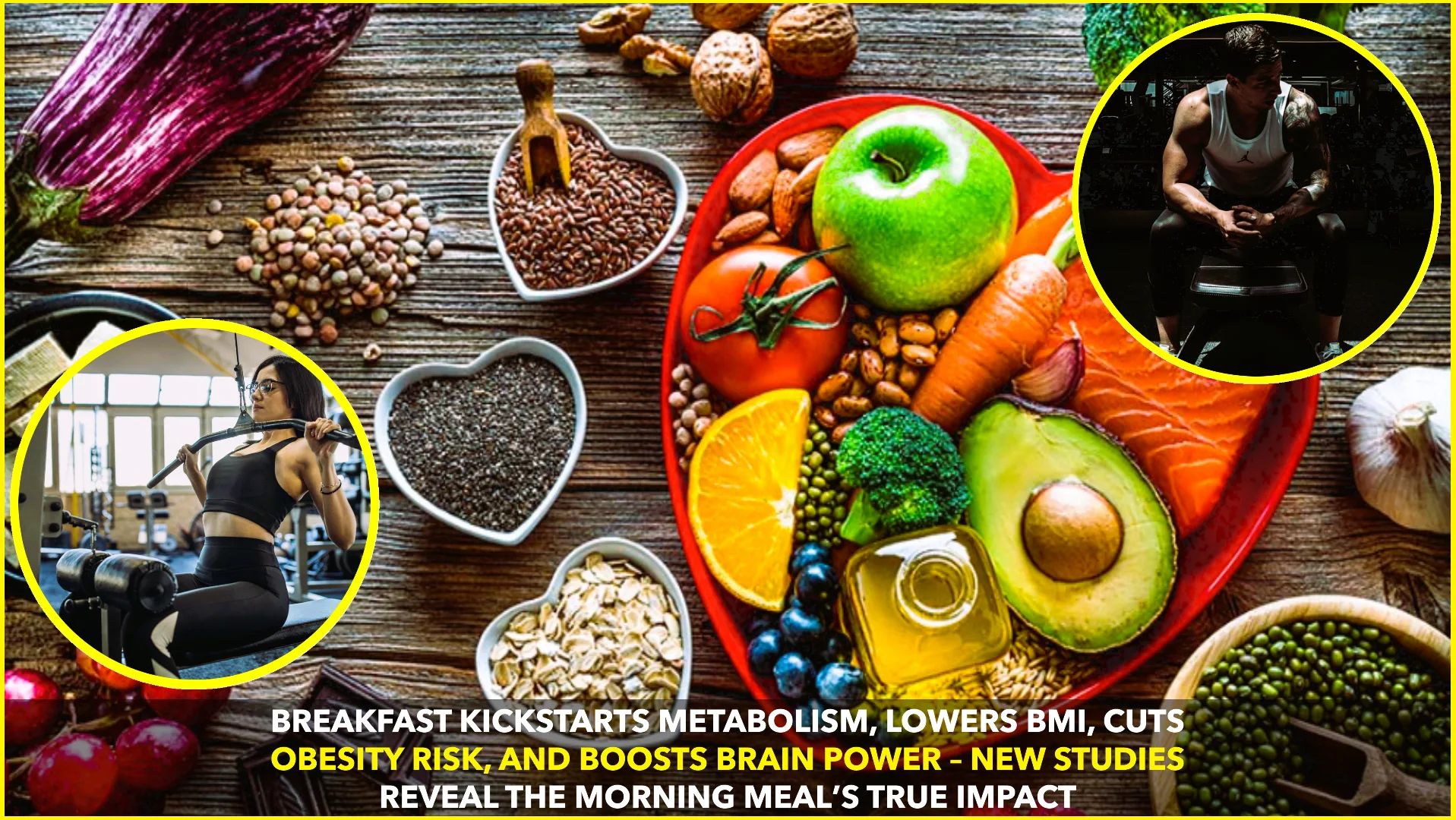NEW DELHI, July 16, 2025:
In response to public concern and media discussions, the Union Health Ministry clarified on Tuesday that its recent advisory about displaying sugar and oil content on street food items is not a warning or directive targeting India’s vibrant street food culture. Instead, the ministry emphasized that the recommendation is a “behavioural nudge” aimed at encouraging healthier food choices among the public.
The clarification follows a social media uproar and concerns from street food vendors and culinary enthusiasts who feared that such advisories may lead to restrictions or stigma against popular Indian snacks like samosas, jalebis, kachoris, and pakoras—cornerstones of India’s food identity.
In a formal statement, the ministry said,
“The health ministry advisory does not direct warning labels on food products sold by vendors, and has not been selective towards Indian snacks. The move is simply a behavioural nudge to increase public awareness of hidden fats and excessive sugar in food.”
The ministry made it clear that there is no regulation or order requiring vendors to mandatorily label their products with fat or sugar content. It is part of a broader public health initiative to reduce lifestyle-related diseases such as diabetes, hypertension, and obesity by promoting better food awareness.
This comes in the backdrop of growing health concerns in India, where a recent report by the Indian Council of Medical Research (ICMR) stated that over 101 million people are diabetic and over 136 million are pre-diabetic. Rising consumption of fried, sugary foods is one of the contributing factors.
Health experts have welcomed the ministry’s approach. Dr. Anoop Misra, Chairman of Fortis C-DOC Hospital for Diabetes and Allied Sciences, said:
“India’s street food is iconic, and no one is saying people shouldn’t enjoy it. But increasing awareness about what’s in our food—like sugar levels or cooking oil—is a good public health step.”
The ministry reiterated that Indian street food culture is an important part of the country’s heritage and has not been singled out. Instead, it emphasized a pan-sectoral approach including packaged foods, restaurant meals, and processed snacks, which often contain high levels of hidden fats, trans fats, and sugars.
Food safety and public health campaigns, including the “Eat Right India” movement launched by the Food Safety and Standards Authority of India (FSSAI), have previously promoted similar behavioral nudges. The ministry said that such measures are meant to empower consumers to make informed choices and do not amount to any regulation or ban.
Meanwhile, several state-level food vendors’ associations have also responded positively. Rajesh Sharma, head of the Delhi Street Vendors’ Union, said:
“We were initially concerned, but now it’s clear there is no threat to our businesses. If providing some information to customers helps public health, we can support that.”
The government has assured that any future initiatives in this direction will involve stakeholders, including street vendors, health experts, and consumers. The emphasis, it says, is on education, not enforcement.
Source:
- Ministry of Health and Family Welfare press release (July 16, 2025)
- ICMR Diabetes Data Report 2023
- Fortis C-DOC expert interview, Hindustan Times
- “Eat Right India” campaign, FSSAI official portal










